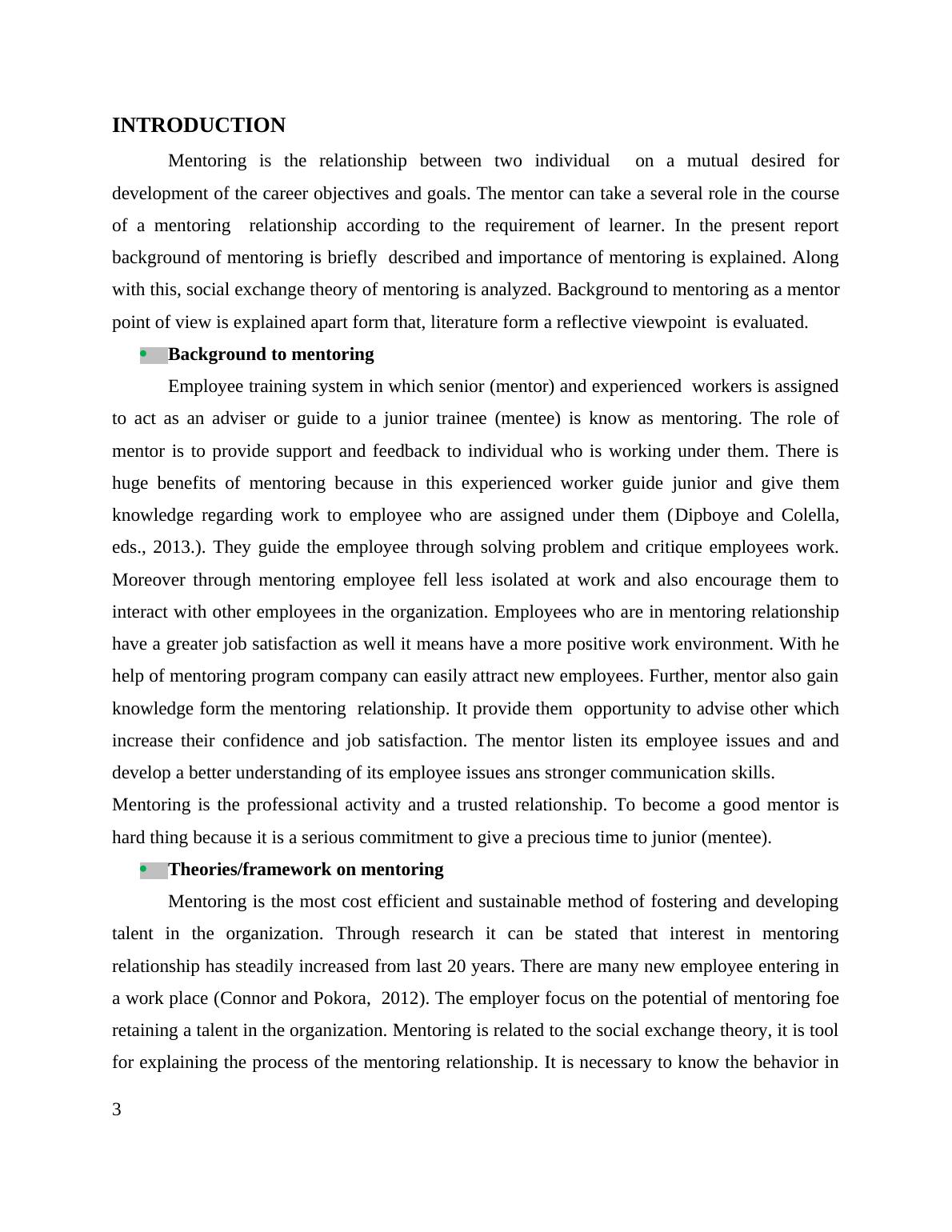Social Exchange Theory of Mentoring
Added on 2020-01-21
7 Pages1776 Words312 Views
Reflective

TABLE OF CONTENTSIntroduction......................................................................................................................................3Conclusion ......................................................................................................................................6References .......................................................................................................................................72

INTRODUCTIONMentoring is the relationship between two individual on a mutual desired fordevelopment of the career objectives and goals. The mentor can take a several role in the courseof a mentoring relationship according to the requirement of learner. In the present reportbackground of mentoring is briefly described and importance of mentoring is explained. Alongwith this, social exchange theory of mentoring is analyzed. Background to mentoring as a mentorpoint of view is explained apart form that, literature form a reflective viewpoint is evaluated. Background to mentoring Employee training system in which senior (mentor) and experienced workers is assignedto act as an adviser or guide to a junior trainee (mentee) is know as mentoring. The role ofmentor is to provide support and feedback to individual who is working under them. There ishuge benefits of mentoring because in this experienced worker guide junior and give themknowledge regarding work to employee who are assigned under them (Dipboye and Colella,eds., 2013.). They guide the employee through solving problem and critique employees work.Moreover through mentoring employee fell less isolated at work and also encourage them tointeract with other employees in the organization. Employees who are in mentoring relationshiphave a greater job satisfaction as well it means have a more positive work environment. With hehelp of mentoring program company can easily attract new employees. Further, mentor also gainknowledge form the mentoring relationship. It provide them opportunity to advise other whichincrease their confidence and job satisfaction. The mentor listen its employee issues and anddevelop a better understanding of its employee issues ans stronger communication skills. Mentoring is the professional activity and a trusted relationship. To become a good mentor ishard thing because it is a serious commitment to give a precious time to junior (mentee).Theories/framework on mentoringMentoring is the most cost efficient and sustainable method of fostering and developingtalent in the organization. Through research it can be stated that interest in mentoringrelationship has steadily increased from last 20 years. There are many new employee entering ina work place (Connor and Pokora, 2012). The employer focus on the potential of mentoring foeretaining a talent in the organization. Mentoring is related to the social exchange theory, it is toolfor explaining the process of the mentoring relationship. It is necessary to know the behavior in3

End of preview
Want to access all the pages? Upload your documents or become a member.
Related Documents
Developing Skills: Coaching and Mentoring in Organizationslg...
|15
|1837
|311
Mentoring in an Organization Assignmentlg...
|4
|429
|75
Developing People & High Performance Organizationslg...
|7
|1951
|41
An Introduction to Managementlg...
|6
|1135
|36
Introduction to HRMlg...
|9
|2551
|59
Developing Individuals, teams and organisations - Deskliblg...
|27
|5953
|155